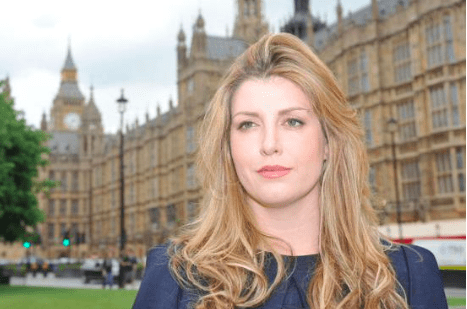Politicians know they need to be more natural, less spun, and more honest about what they think. But most of them carry on sounding unnatural, spin-doctored and cagey because they’re worried about the media will do to them if they speak their minds. They fear being pounced upon by journalists keen to write up their latest ‘gaffe’. But this week we’ve seen two politicians saying what they think without any major repercussions. Example one comes from Boris Johnson in his interview with Tim Shipman. The Mayor was asked whether he watched Coronation Street or Eastenders:
‘Um. What a world we live in where you are felt to be out of touch if you don’t watch these things. Why should I? It’s ridiculous, totally ridiculous. Dirty Den, that was EastEnders. Forget it, it’s not my thing.’
Then this week Esther McVey was asked on ITV’s Loose Women whether she wanted to be Prime Minister. Her response was:
‘If I had to do a yes or no, I’ll be honest, I’ll say yes.’
I have interviewed colleagues of McVey with far less of a chance of ever getting near the job of Prime Minister who have given evasive answers on this, which always makes them look like fools. There was one who has never made it off the backbenches for pretty good reason who, when I asked if he had any ambitions for higher office, replied with all the gravity of someone already in the Cabinet that ‘I’m just thrilled to be serving my constituents’. His colleagues were equally thrilled that he wasn’t doing anything else.
In both cases, the politicians have said what they think and the sky hasn’t fallen in. Far better to say that you don’t have time for soap operas than to mug up on the programme without ever having watched it, as Ed Miliband was mocked for doing recently. Part of Boris’s appeal is that he appears comfortable in his own skin, rather than caring quite so much about what other people think.
Even in stickier situations, being defiant about who you are and what you think serves a politician well. Louise Mensch managed to deal with stories about her taking drugs with a well-written and witty letter in which she said the allegation was ‘highly probable’ and that ‘I am not a very good dancer and must apologise to any and all journalists who were forced to watch me dance that night at Ronnie Scott’s’. And more recently, Penny Mordaunt responded to the Mail on Sunday’s coverage of her ‘cock’ debate by saying ‘if I have offended anyone I’m sorry. Feel free to beat me up over it.’ That showed, to continue the theme of the ‘obscene debate in Parliament’ story, some balls: the Tory MP was basically saying ‘I don’t care if you write a story criticising me, I’ll get over it’.
If politicians started being more honest in public about what they were up to, then of course it would get written up as a story, or at least to begin with. If ministers admitted they’d made a mistake in the design of a policy, then that too would be written up as a story, to begin with. But just as we once wrote up every frown exchanged by coalition ministers as a ‘government split’, the media has grown tired of stories about Simon Hughes being unhappy with a Tory policy – and Simon Hughes is now in government (and still unhappy).
Unusual stories about politicians being honest about their ambitions and their mistakes would soon become dog-bites-man-events, where everyone shrugged and moved on. But they could also help voters respect and empathise with politicians where currently they often feel as though they are watching robots perform. Far from the sky falling in, the consequences of a bit more bravery and outspokenness in politics could be much more positive.







Comments